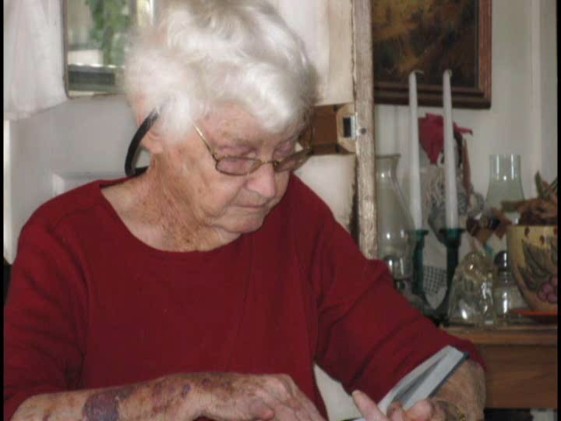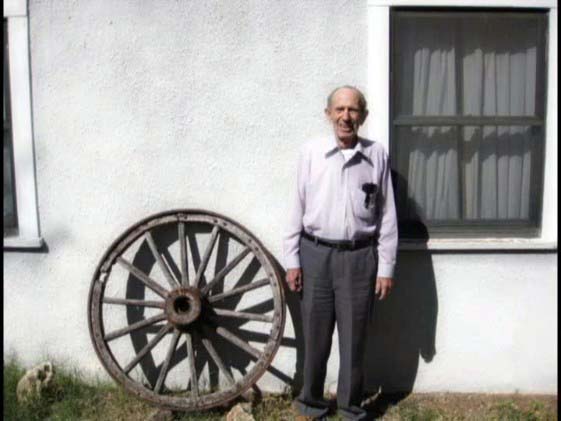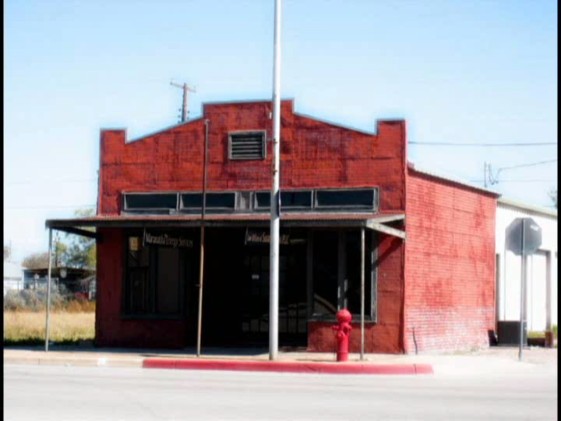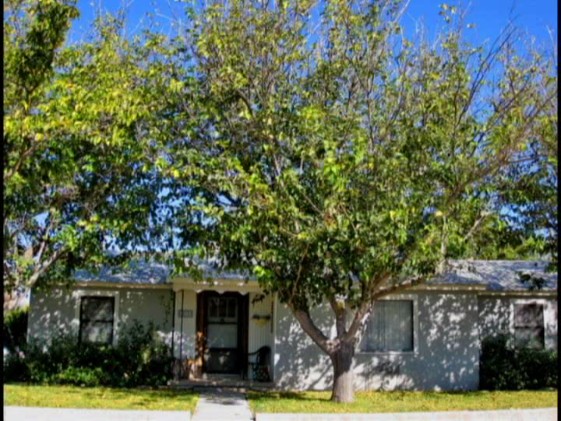
Arlon T. Carroll—
Words spoken at the funeral of a friend
A friend is the one who comes in when the whole world has gone out . . .
![]()
ON the behalf of the family, thank you for coming. Once in awhile we run across someone, never realizing at the time just how much our life will be touched by small talk and shared quiet moments.
In my own life, Mr. Carroll was such a person. I never really could call him Arlon without cringing inside even though he had asked me to call him by his first name. It was a matter of Southern upbringing and of a mother who insisted that her son behave like a Southern gentleman.
You might say that Mr. Carroll was one of those people you read about in Reader’s Digest, My Most Unforgettable Character. He certainly was a character; his own sense of humor showed that. And, he was indeed unforgettable, especially in my sight. You might say that he was special, but somehow I do not like that word. In fact, the word does not seem quite adequate. Besides, if he had heard you say something like that about him, he would have been rather embarrassed.
Mr. Carroll was the kind of person who wanted you to feel more at home than he did, only for you to discover that you were at his house, not your own. He wanted you to feel more important than he was. He never wanted to be the center of attention. He wanted you to be that.
Let me illustrate it like this. Once when I was in his backyard, Mr. Carroll began talking about a neighbor next door, but he did not say what you expect someone to say about a neighbor next door, “Why, he’s the kind of man who always will do more for you than you can do for him. Look over the fence there; he’s got a bunch of bees.”
There were bees there, a lot of bees. Then I noticed rather nervously that Mr. Carroll had his own beehive. The hive was near the back fence, just a little way past the windmill.
Speaking of a windmill, his was the only house in Crane that had a windmill in the backyard. It was an old windmill, of course. The Carroll family never bought anything new even when they could afford it. The old was somehow better, more familiar, more unique and special. The antiques he had were not pretentious: some unusual rock formations over there, a few rusty tools over here.
It was the same inside their house.The first time I walked into their home I felt at home. “There’s some coffee over there, Jim.” He smiled large and blinked his eyes, always twice. The tone of voice was always the same friendly tone. “And, and there’s some toast there, too. Just help yourself.”
You might say words are the mirror of the soul, that what we say about others in some fashion is self-revealing. Mr. Carroll may have said his neighbor wanted to do more for others than others could do for him. He may have said that, but in saying that, he really was describing himself.
I remember how he helped a twelve-year old boy. The post office needed to have a metal post set in concrete. Somehow, Mr. Carroll saw to it that the boy was awarded the job by the United States government. Of course, Mr. Carroll was the one who oversaw the work, but the boy worked hard. It probably was his first job. The boy was from a troubled family. Wordsworth once said that the best portion of a good man’s life is his little, nameless, unremembered acts of kindness and love. That boy may have forgotten what happened. I have not.
There was the time the fire department was in some kind of uproar about who would be the next fire chief. One side had fixed their hopes on one man; another side, on another man. Neither side could agree. Both factions went to Mr. Carroll and asked him to be chief.
Yes, you guessed it. He even roped me into becoming a volunteer fireman. There’s really nothing quite like being rudely awakened by a fire signal at two in the morning, then going out in the middle of nowhere to put out an oil field fire. I enjoyed the adventure. Most of all, I enjoyed being with Mr. Carroll.
[clearcol]
| A friend loveth at all times . . . . |
Mr. Carroll cared about other people. He cared about his community whether it was the fire department, or the Lion’s Club, or the church, or taking a group of common boys on a trip to the Big Bend country, the interest was the same. He had an uncommon appreciation for the common.
On one such trip with a busload of boys, off to spend a night or two at Big Bend, I rode in the middle of the bus. The trip was especially long. So, I wadded up a piece of paper into a tight ball, threw the ball, and hit my target near the front of the bus. The paper, of course, did not hurt the boy, but you could hear the smack as it hit the back of his head. He promptly turned around and then returned fire, but threw at another kid. I did nothing else. Soon pandemonium was everywhere on that bus. The boys were duly scolded and I enjoyed adding to the scolding as well. We all laughed. The joke now centered on the adults. I never told Mr. Carroll that I was the one who had started it all. He and others just talked about how boys can sometimes get a bit unruly. I agreed with him.
Every afternoon Mr. Carroll and I would make our way from the post office to the bank. It was part of his job. I went along just for the adventure and conversation. The moments were common enough, but now as I look back, those shared moments were anything but common. Not even Andy Griffith in Mayberry, I suppose, could have lived a better life. If life is meant to be lived, we lived life those unhurried afternoons.
He was not always the postmaster, however. He had been a plumber first, more out of desperation than anything else. A rattlesnake and his wife convinced him of the need to change occupations. “I was under a house, in the crawl space repairing a leak in some pipes. As I moved some leaves around, I found myself face to face with a rattlesnake. I must have stood up three times before I realized you couldn’t stand up under a house.”
When the position came open for postmaster, he had doubts. “I could never do something like that,” he said to Sibyl. She saw something in him that he never saw in himself. “Oh, yes, you can do that. You can’t fail, if you don’t try.” Convinced by her words, he tried. He got the job. Indeed, he was so good at his job that the government sent him to a number of post offices. Whenever there was a problem, he was sent. Usually more often than not, the problems were people problems, and Mr. Carroll was good at solving those kinds of difficulties.

As a college professor, I must tell his children something they may not have known. Your dad was absolutely brilliant. He may not have seen himself that way, but even if he had, he would not have wanted others to know it. He regarded himself largely as common, but he was extraordinary. He could have done anything he chose to do. He chose the humble and quiet life.
There was a time in my life when everything came crashing in and the whole world walked out. My days were filled with deep sorrow; my nights, with even deeper grief. I looked up and through tears, I saw the faint outline of two familiar faces: Arlon and Sibyl Carroll. “How could you be here? This is Tampa, Florida— thousands of miles from Texas.”
This thou knowest, that all they which are in Asia be turned away from me; of whom are Phygellus and Hermogenes.
The Lord give mercy unto the house of Onesiphorus; for he oft refreshed me, and was not ashamed of my chain: But, when he was in Rome, he sought me out very diligently, and found me. The Lord grant unto him that he may find mercy of the Lord in that day: and in how many things he ministered unto me at Ephesus, thou knowest very well.
—2 Timothy 1:15-18
O God, if thou wilt remember Onesiphorus, for my sake, remember Arlon Carroll. In the hour of my despair, he sought me out and found me. Remember him, O God. Remember him, I pray thee. I pray thee.
[clearcol]




